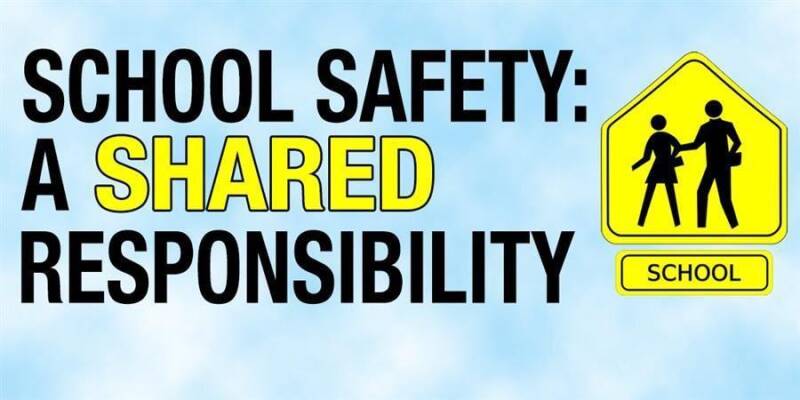By Michael R. Grigsby, Editor | Somerset-Pulaski Advocate

Image: CANVA
Editorial (SPA)---The headlines have become numbingly familiar. Another community shattered. Another family destroyed. Another preventable tragedy that leaves us asking the same haunting question: How many more times must we witness preventable violence before we acknowledge the mental health crisis that underlies so many of these devastating events?
The recent shooting in Minnesota, where a 23-year-old individual took the lives of two innocent children and injured seventeen others, represents far more than an isolated incident of violence. It is a stark reminder that our nation's approach to mental health care remains fundamentally inadequate, leaving vulnerable individuals without the support they desperately need and communities vulnerable to the catastrophic consequences.
The Scale of Our Crisis
We are confronting a mental health emergency that transcends political boundaries and demographic divisions. When mass violence involving mentally ill perpetrators occurs with such frequency that it barely registers as exceptional news, we must acknowledge that our current systems are failing at the most basic level. The tragedy is not merely in the violence itself, but in our collective inability to prevent it through early intervention and comprehensive care.
The pattern is tragically predictable: warning signs go unrecognized or unaddressed, support systems fail to engage effectively with those in crisis, and communities are left to cope with preventable devastation. Each incident represents not just a failure of individual treatment, but a systemic breakdown that demands urgent reform.
Kentucky's Proactive Response
While federal action remains frustratingly slow, some states have begun implementing comprehensive approaches that address both immediate safety concerns and underlying mental health needs. Kentucky's legislative efforts over the past several years demonstrate how targeted policy can create meaningful change.
The state has pursued a dual-track approach that combines enhanced security measures with expanded mental health resources. The School Safety and Resiliency Act and subsequent legislation mandated the presence of School Resource Officers in every public school by August 2022, providing trained law enforcement protection for students and staff. Despite funding challenges—including Governor Beshear's line-item veto of SRO funding that would have allocated $18 million for the 2025-2026 fiscal year—the commitment to physical security remains strong.
More significantly, Kentucky has invested in its mental health infrastructure, which could help prevent tragedies before they occur. The Mental Health First Aid Training Program established through HB 153 creates a statewide network of individuals trained to recognize mental health crises and connect people with appropriate resources. This early intervention approach represents precisely the kind of proactive thinking we need.
Seth's Law and Tim's Law address critical gaps in the treatment system by improving court-based mental health services and expanding assisted outpatient treatment for individuals with severe mental illness who might not seek help voluntarily. These measures acknowledge that effective mental health care sometimes requires intervention beyond traditional voluntary treatment models.
The Mental Health Parity legislation tackles the insurance barriers that often prevent people from accessing needed care, ensuring that mental health treatment receives equal coverage with medical and surgical benefits. This addresses one of the most significant obstacles to mental health care: cost and accessibility.
The Path Forward
Kentucky's comprehensive approach offers a blueprint for other states, but even these measures represent only the beginning of what's needed. A truly effective response to our mental health crisis requires sustained commitment across multiple fronts.
First, we must dramatically expand access to mental health services, particularly in underserved communities. This means more providers, better insurance coverage, and innovative delivery models that reach people before they reach crisis points.
Second, we need robust early intervention programs that identify and support individuals showing signs of mental health deterioration. Schools, workplaces, and community organizations must be equipped with the tools and training to recognize warning signs and connect people with appropriate care.
Third, we must address the stigma that prevents many people from seeking help. Mental health care cannot be effective if those who need it most are reluctant to access available services due to shame or social pressure.
Finally, we need sustained funding commitments that recognize mental health care as essential infrastructure, not an optional expense. The cost of comprehensive mental health services pales in comparison to the human and economic toll of untreated mental illness.
A Moral Imperative
Every child who dies in preventable violence represents a failure of our collective responsibility to protect the most vulnerable members of our society. Every family destroyed by preventable tragedy bears witness to our inadequate response to a crisis we have the knowledge and resources to address.
The question is not whether we can afford to invest in comprehensive mental health reform—it is whether we can afford not to. The price of inaction is measured in shattered lives, traumatized communities, and a society that accepts preventable violence as inevitable.
Kentucky's efforts demonstrate that meaningful action is possible when legislators prioritize both immediate safety and long-term prevention. Other states should follow this lead, and federal policymakers must provide the resources and coordination necessary to scale these solutions nationally.
We owe it to the children lost in Minnesota, to their grieving families, and to every community living in fear of the next preventable tragedy to finally treat mental health care with the urgency and resources it demands. The time for thoughts and prayers has long passed. The time for comprehensive action is now.
*******
(C) 2025 Somerset-Pulaski Advocate. All Rights Reserved
Add comment
Comments